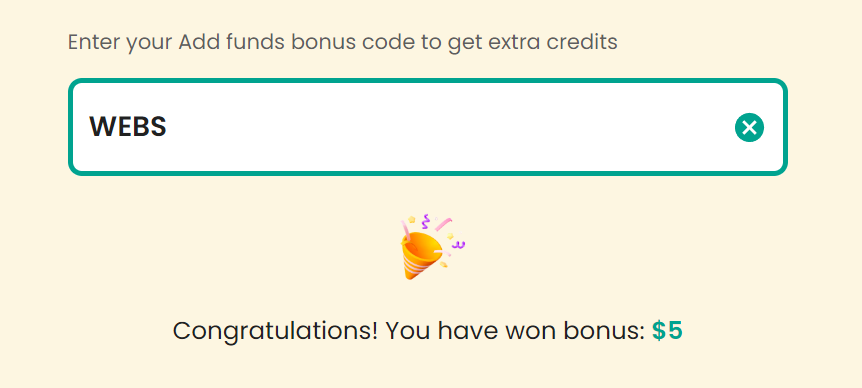Navigating the complexities of CAPTCHA challenges can be a formidable task, especially when it comes to Cloudflare's Turnstile. As a seasoned developer, I’ve encountered numerous CAPTCHA systems over the years, but Cloudflare Turnstile presents a unique challenge due to its sophisticated algorithms designed to thwart automated systems. In this guide, I'll walk you through how to tackle Cloudflare Turnstile CAPTCHA challenges using C#, providing you with practical insights and techniques to enhance your automation efforts.
- Introduction to Cloudflare Turnstile
- Setting Up the C# Development Environment
- Download and Install .NET
- Configure VS Code for C# Development
- Obtain API Usage Prerequisites
- Register for CapSolver
- Retrieve SiteKey for Turnstile
- Using CapSolver API to Obtain a Turnstile Token
- Full Code Example
- Error Handling and Troubleshooting
- Request Failed Errors
- Explanation of Code
- Conclusion
Cloudflare Turnstile is an advanced CAPTCHA system designed to protect websites from automated bots while ensuring minimal friction for legitimate users. Unlike traditional CAPTCHAs, which often involve solving puzzles or identifying objects, Turnstile operates through a more nuanced approach. It analyzes user behavior and various web interactions to determine whether the visitor is a human or a bot. Turnstile employs a range of signals, including mouse movements, click patterns, and interaction times, to generate a challenge that is difficult for automated systems to solve. This makes it a powerful tool for website security but also a challenging obstacle for automation.
Claim Your Bonus Code for top captcha solutions; CapSolver: WEBS. After redeeming it, you will get an extra 5% bonus after each recharge, Unlimited
- Visit this page to download .NET.
- Follow the instructions provided for your operating system to install .NET.
- Install the C# extension for VS Code.
- In VS Code, search for "C#" in the extensions marketplace and install the official plugin by Microsoft.
- This extension provides features like IntelliSense and code formatting, making C# development easier.
- Install the JSON parsing package
Newtonsoft.Jsonfor handling JSON data.- You can install this package using NuGet with the command:
dotnet add package Newtonsoft.Json
- You can install this package using NuGet with the command:
- Create an account on CapSolver to access their API services.
- After registration, you'll receive an API key necessary for accessing CapSolver's CAPTCHA solving services.
- For Cloudflare Turnstile CAPTCHA challenges, obtaining the
siteKeyfor the target website is essential. ThesiteKeyis required to use the decoding API and solve the CAPTCHA. - You can extract the
siteKeyusing the CapSolver Extension, which simplifies the process.
Here's the code to interact with the CapSolver API, request CAPTCHA solving, and retrieve the Turnstile token.
public static async Task<string> CallCapsolver()
{
// // Send GET request
// var todoItem = await GetTodoItemAsync(API_URL);
// Console.WriteLine("GET Request Result:");
// Console.WriteLine(todoItem);
var data = new
{
clientKey = CAPSOLVER_API_KEY,
task = new
{
type = "AntiTurnstileTaskProxyLess",
websiteURL = PAGE_URL,
websiteKey = SITE_KEY,
metadata = new { action = "login" }
}
};
// Send POST request
var response = await PostTodoItemAsync("https://api.capsolver.com/createTask", data);
Console.WriteLine("POST Request Result:");
var responseString = await response.Content.ReadAsStringAsync();
Console.WriteLine(responseString);
JObject taskResp = JsonConvert.DeserializeObject<JObject>(responseString);
var taskId = taskResp["taskId"].ToString();
if (string.IsNullOrEmpty(taskId))
{
Console.WriteLine("No task ID received.");
return "";
}
Console.WriteLine($"Created task ID: {taskId}");
while (true)
{
await Task.Delay(1000); // Sleep for 1 second
var resultData = new
{
clientKey = CAPSOLVER_API_KEY,
taskId = taskId
};
// content = new StringContent(JsonConvert.SerializeObject(data), System.Text.Encoding.UTF8, "application/json");
// response = await httpClient.PostAsync(uri, content);
response = await PostTodoItemAsync("https://api.capsolver.com/getTaskResult", resultData);
responseString = await response.Content.ReadAsStringAsync();
Console.WriteLine(responseString);
if (!response.IsSuccessStatusCode)
{
Console.WriteLine($"Failed to get task result: {responseString}");
return "";
}
taskResp = JsonConvert.DeserializeObject<JObject>(responseString);
Console.WriteLine(taskResp);
var status = taskResp["status"].ToString();
if (status == "ready")
{
Console.WriteLine("Successfully => " + responseString);
return taskResp["solution"]["token"].ToString();
}
if (status == "failed")
{
Console.WriteLine("Failed! => " + responseString);
return "";
}
}
}using System;
using System.Net.Http;
using System.Threading.Tasks;
using Newtonsoft.Json;
using Newtonsoft.Json.Linq;
namespace HttpExample
{
public class Program
{
private const string CAPSOLVER_API_KEY = "CAI-xxxxxxxxxxxxxxxxxxx";
private const string PAGE_URL = "https://dash.cloudflare.com/login";
private const string SITE_KEY = "0x4AAAAAAAJel0iaAR3mgkjp";
public static async Task Main(string[] args)
{
var token = await CallCapsolver();
Console.WriteLine($"token: {token}");
await Login(token);
}
public static async Task<string> CallCapsolver()
{
// // Send GET request
// var todoItem = await GetTodoItemAsync(API_URL);
// Console.WriteLine("GET Request Result:");
// Console.WriteLine(todoItem);
var data = new
{
clientKey = CAPSOLVER_API_KEY,
task = new
{
type = "AntiTurnstileTaskProxyLess",
websiteURL = PAGE_URL,
websiteKey = SITE_KEY,
metadata = new { action = "login" }
}
};
// Send POST request
var response = await PostTodoItemAsync("https://api.capsolver.com/createTask", data);
Console.WriteLine("POST Request Result:");
var responseString = await response.Content.ReadAsStringAsync();
Console.WriteLine(responseString);
JObject taskResp = JsonConvert.DeserializeObject<JObject>(responseString);
var taskId = taskResp["taskId"].ToString();
if (string.IsNullOrEmpty(taskId))
{
Console.WriteLine("No task ID received.");
return "";
}
Console.WriteLine($"Created task ID: {taskId}");
while (true)
{
await Task.Delay(1000); // Sleep for 1 second
var resultData = new
{
clientKey = CAPSOLVER_API_KEY,
taskId = taskId
};
// content = new StringContent(JsonConvert.SerializeObject(data), System.Text.Encoding.UTF8, "application/json");
// response = await httpClient.PostAsync(uri, content);
response = await PostTodoItemAsync("https://api.capsolver.com/getTaskResult", resultData);
responseString = await response.Content.ReadAsStringAsync();
Console.WriteLine(responseString);
if (!response.IsSuccessStatusCode)
{
Console.WriteLine($"Failed to get task result: {responseString}");
return "";
}
taskResp = JsonConvert.DeserializeObject<JObject>(responseString);
Console.WriteLine(taskResp);
var status = taskResp["status"].ToString();
if (status == "ready")
{
Console.WriteLine("Successfully => " + responseString);
return taskResp["solution"]["token"].ToString();
}
if (status == "failed")
{
Console.WriteLine("Failed! => " + responseString);
return "";
}
}
}
public static async Task Login(string token)
{
using var httpClient = new HttpClient();
// Add request headers
httpClient.DefaultRequestHeaders.TryAddWithoutValidation("Cookie", $"cf_clearance={token}");
httpClient.DefaultRequestHeaders.TryAddWithoutValidation("Host", "dash.cloudflare.com");
var data = new {
cf_challenge_response = token,
email = "1111111@gmail.com",
password = "123456",
};
var json = JsonConvert.SerializeObject(data);
var content = new StringContent(json, System.Text.Encoding.UTF8, "application/json");
var response = await httpClient.PostAsync("https://dash.cloudflare.com/api/v4/login", content);
if (!response.IsSuccessStatusCode)
{
throw new Exception($"Request failed with status code {response.StatusCode}");
}
var responseString = await response.Content.ReadAsStringAsync();
Console.WriteLine(responseString);
}
private static async Task<HttpResponseMessage> GetTodoItemAsync(string url)
{
using var httpClient = new HttpClient();
var response = await httpClient.GetAsync(url);
if (!response.IsSuccessStatusCode)
{
throw new Exception($"Request failed with status code {response.StatusCode}");
}
// var responseString = await response.Content.ReadAsStringAsync();
return response;
}
private static async Task<HttpResponseMessage> PostTodoItemAsync(string url, object item)
{
using var httpClient = new HttpClient();
var json = JsonConvert.SerializeObject(item);
var content = new StringContent(json, System.Text.Encoding.UTF8, "application/json");
var response = await httpClient.PostAsync(url, content);
if (!response.IsSuccessStatusCode)
{
throw new Exception($"Request failed with status code {response.StatusCode}");
}
return response;
}
}
}- Request Failed: If you encounter a "Request failed" error, verify that the API key and site key are correct.
- Ensure you have an active API key from your CapSolver account.
- Double-check that the
siteKeymatches the one from the target website.
- Setting up the Task: In the
CallCapsolvermethod, you define the task typeAntiTurnstileTaskProxyLess, thewebsiteURL, andwebsiteKey. These parameters are sent to CapSolver to create the CAPTCHA-solving task. - Polling for Task Status: Once the task is created, the code polls the
getTaskResultendpoint to check the task's status. If the task is ready, it retrieves the solution (the Turnstile token); if it fails, it returns an error. - Using the Token: The
Loginmethod uses the token received from CapSolver to authenticate the login request on the Cloudflare-protected website.
By following this guide, you’ll be able to navigate the complexities of solving Cloudflare Turnstile CAPTCHA challenges using C#. CapSolver’s API provides a reliable and efficient way to automate the process, improving your automation capabilities. For more information and updates, visit CapSolver.
Important: When engaging in web scraping, it's crucial to adhere to legal and ethical guidelines. Always ensure that you have permission to scrape the target website, and respect the site's
robots.txtfile and terms of service. CapSolver firmly opposes the misuse of our services for any non-compliant activities. Misuse of automated tools to bypass CAPTCHAs without proper authorization can lead to legal consequences. Make sure your scraping activities are compliant with all applicable laws and regulations to avoid potential issues.


